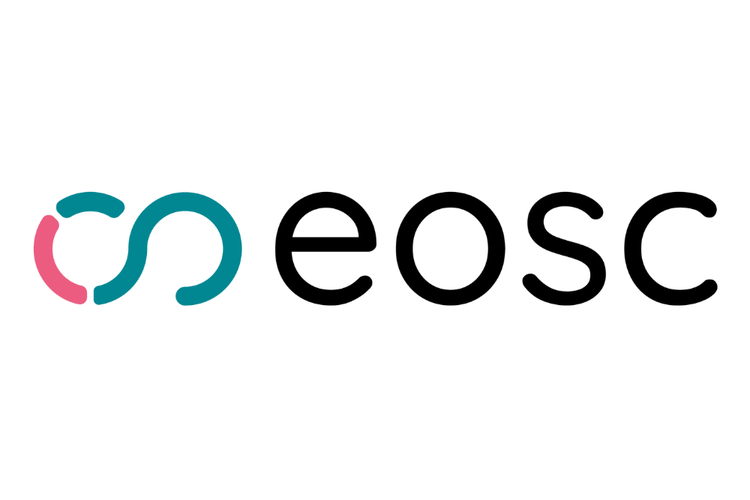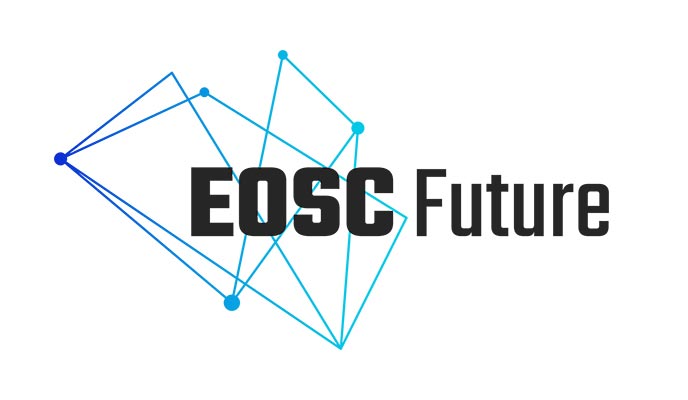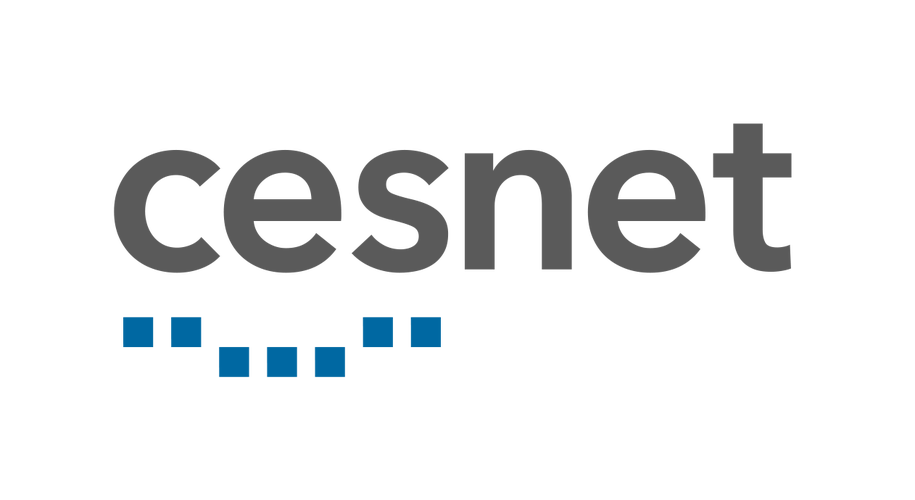Training & Skills for EOSC: Lightning talks
About the session
In order to leverage the potential of EOSC for open and data- intensive research, a key challenge for Europe is to ensure the availability of highly and appropriately skilled people. The vision of a strong EOSC ecosystem that exploits digital technologies and has data and software at its core necessitates a comprehensive skills and education strategy. The sessions will present how different initiatives are contributing to build training and skills for EOSC.
Agenda
Moderated by Katrine Weisteen Bjerde, Special Advisor Research Services, Norwegian Directorate of Higher Education and Skills, Norway
| Timing | Topic | Speakers |
| 16:00 – 16:05 | Introduction & welcome | Katrine Weisteen Bjerde (Special Advisor Research Services, Norwegian Directorate of Higher Education and Skills, Norway) |
| 16:05 – 16:15 | Talk #1 The Open Science Communities Incubator Program Presentation | Loek Brinkman (DANS/TUDelft, INOSC) |
| 16:15 – 16:25 | Talk #2 The Training Catalogue for Photon and Neutron Data Services Presentation | Oliver Knodel (Helmholtz-Zentrum Dresden-Rossendorf) |
| 16:25 – 16:35 | Talk #3 The value of research support networks for the uptake of EOSC Presentation | Giuseppe La Rocca (EGI Foundation) |
| 16:35 – 16:45 | Talk #4 The Skills4EOSC project contribution Presentation | Emma Lazzeri (GARR) |
| 16:45 – 16:55 | Talk #5 ELIXIR Training Platform: Empowering life science researchers to connect to EOSC Presentation | Jessica Lindvall (NBIS/ELIXIR-SE) |
| 16:55 – 17:05 | Talk #6 Training Delivery and Content Integration for EOSC – some Highlights and Lessons learned Presentation | Heinrich Widmann (DKRZ) |
| 17:05 – 17:30 | Open discussion | Moderated by Katrine Weisteen Bjerde (Special Advisor Research Services, Norwegian Directorate of Higher Education and Skills, Norway) |
About the talks and relevance for the EOSC
Talk #1 – The Open Science Communities Incubator Program
Open Science (OS) will only take shape when communities of researchers are actively engaged in the transition to OS. That is why the EU funded project Skills4EOSC focusses on collaborating with and expanding the International Network of Open Science Communities (INOSC). This network consists of local grass-roots communities of researchers, who want to learn OS skills and share their OS expertise with their peers. INOSC currently consists of 19 local Open Science Communities (OSC) in 8 different countries, within and beyond Europe. Skills4EOSC and INOSC are organising a 12-week OSC Incubator Program to assist researchers and support staff to set-up and foster their own local OSC. In this talk, we will show how you can connect with INOSC and join the OSC Incubator Program.
Engaging with communities of researchers is central to EOSC. The International Network of Open Science Communities (INOSC) -consisting of 19 local communities of researchers that are putting OS to practice- provide opportunities for EOSC and EU funded projects to connect to these OS enthusiasts (1000+). Skills4EOSC is collaborating with INOSC to host a 12-week Incubator Program to help researchers and support staff to set-up and foster their own local OSC, extending and strengthening the network across and beyond Europe. At the EOSC Symposium, we like to introduce the OSC Incubator Program and invite colleagues across Europe to join our program.
@Skills4EOSC
Talk #2 – The Training Catalogue for Photon and Neutron Data Services
Education is becoming an increasingly important topic to help scientists work on Photon and Neutron (PaN) sources. The pan-training.eu portal is a result of the two H2020 projects ExPaNDS and PaNOSC. Our portal consists firstly of a catalogue for the registration of third-party training materials such as tutorials, videos or repositories. On the other hand, the portal also offers a tightly coupled e-learning system with PaN-specific blended learning courses with Jupyter notebook support. With the catalogue, we are strengthening the role of EOSC services for the PaN scientific field, with a focus on providing a sustainable training, learning and documentation platform for the PaN community as a whole including also initiatives such as LEAPS, LENS and Laselab Europe.
With the PaN-training catalogue, we have created a sustainable service for the whole Photon and Neutron (PaN) community. By refurbishing an established service, we hope to show how other communities can follow our example and set up similar services with the same codebase for catalogues. The codebase developed by Elixir and reused by ExPaNDS/PaNOSC can be extended into an easily customisable solution for further communities within the EOSC.
@olikno
Talk #3 – The value of research support networks for the uptake of EOSC
One of the missions of the EGI-ACE project is to empower researchers from all scientific disciplines to collaborate in data- and compute-intensive research enabled by free-at-point-of-use services that are delivered through EOSC. To address this mission the project set-up a distributed support network of technical experts. This network played an active role to boost the integration of scientific communities in the EOSC Computing Infrastructure and contribute to the EOSC Exchange. In this talk we provide an overview of this support network and present the main outcomes achieved by this network during the first 23 months. To further promote the uptake of EOSC we propose to further expand this network of technical supporters including specialists, and domain-specific EOSC-related projects.
The EGI-ACE distributed technical support network has played an active role to support the integration plans of 37 use cases with the EOSC Compute Platform. This network has also contributed to onboard new Thematic Services and Data Spaces (e.g: MOBIS, AiiDAlab, OpenBioMaps, ENES Data Space, LOFAR Science Products, OPERAS metrics and certification service, SeaDataNet WebOcean Data Analysis, and GBIF) in EOSC.
Talk #4 – The Skills4EOSC project contribution
The talk introduces the project Skills4EOSC that involves 44 partners coordinated by GARR, and aims at creating a EOSC-ready digitally skilled workforce. In the next 3 years, by connecting existing competence centres in open science and RDM in 18 countries in Europe and beyond, the project will develop methodologies, activities and training resources to unify the current training landscape and to provide dedicated community-specific support to leverage the potential of EOSC for open and data-intensive research. The project wil target researchers, data professionals, policy makers, civil servants, thematic communities and peer networks. Skills4EOSC will leverage on Minimum Viable Skillset definition, harmonisation of curricula, FAIR by design learning materials and lifelong learning paths.
Skills4EOSC (Skills for the European Open Science commons: creating a training ecosystem for Open and FAIR science) represents a concrete step forward in closing the gaps identified in the SRIA in relation to Open Science competencies: lack of Open Science and data expertise, lack of a clear definition of data professional profiles and corresponding career paths, and fragmentation in training resources. The project will coordinate existing and new national, regional and domain specific competence centres to effectively multiply the EOSC related skills and locally support the users, targeting the broader spectrum of EOSC stakeholders.
@Skills4EOSC
Talk #5 – ELIXIR Training Platform: Empowering life science researchers to connect to EOSC
Open Science is a founding principle of ELIXIR, a pan-European research infrastructure for life science data, consisting of 23 Member Nodes/Countries. For the ELIXIR Training Platform, the core values and commitment to openly share, provide and support lifelong learning are equally important and align with the Open Science principles. The aim is to provide the Europe-wide coordination and support of training development, reusability and discoverability with the intent to strengthen national training programmes, grow bioinformatics and data management training capacity and competence, and empower researchers to use ELIXIR’s services and tools. With examples, the talk highlights the route the Training Platform has taken to promote and implement Open Science FAIR (Findable, Accessible, Interoperable and Reusable) and lift the opportunities for synergies with EOSC.
ELIXIR is an ESFRI with the mission to unite Europe’s leading life science organisations under the founding principle of Open Science. The ELIXIR Platforms are designed to provide a connected set of resources required to enable reuse of data, efficient use of resources and reproducibility of research in a trans-national network. With this the ELIXIR Training Platform is committed to openly share, provide and support lifelong learning, aligning with the Open Science and FAIR principles. The Training Platform aims to become an EOSC Training Provider for the life sciences, bringing our expertise and resources related to training, skills, competences and infrastructure. This talk encourages synergies between ELIXIR and EOSC.
#WeAreEOSC
Talk #6 – Training Delivery and Content Integration for EOSC – some Highlights and Lessons learned
The EOSC-Future task ‘Training Delivery and Content Integration for EOSC’ designs and develops training courses supporting cross-domain and cross-infrastructure participation in EOSC. The training modules contain one or more courses and will be aimed at different target groups comprising EOSC end-users (e.g. researchers), EOSC providers, trainers and data stewards. In this talk, we focus on the current activities of the actor group ‘Service and Data Providers’, in particular the upcoming training events on ‘How to onboard services to EOSC-Portal’ and ‘Service documentation’.
Training is an essential pillar to enable all potential users and communities to easily participate in and get maximum benefit from EOSC.
(RE)WATCH
Do you want to (re)watch the session? Take a look below.
If you want to (re)live the full Symposium? Take a look at the EOSC Portal youtube channel.










